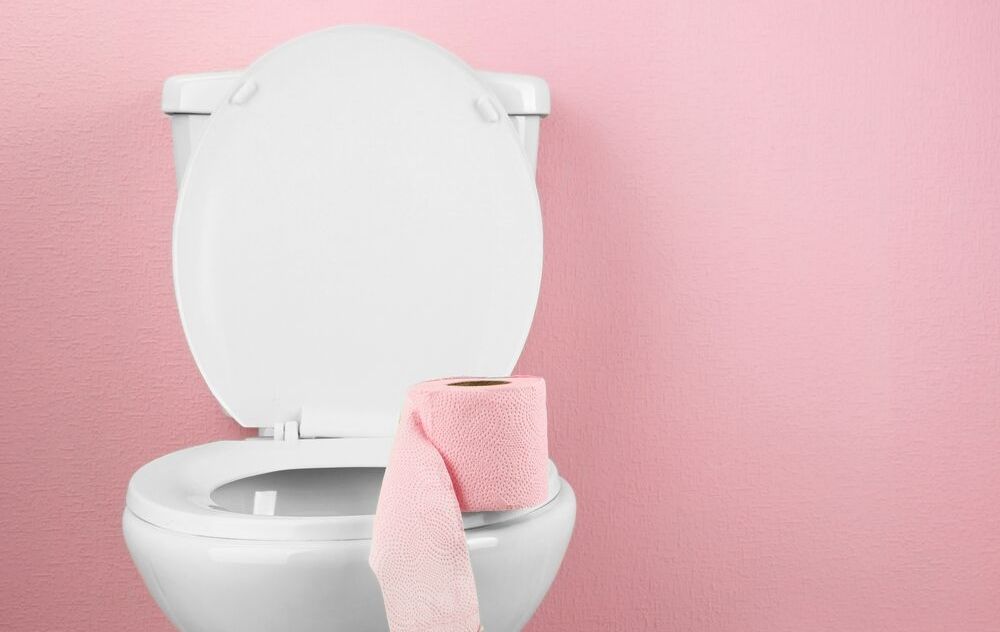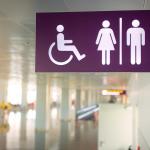
Many women probably don’t think there could be a connection between periods and digestion. However, some women experience digestive symptoms every time they get their period. These symptoms can include stomach pain, cramping, bloating, nausea, and diarrhea.
How Your Period May Affect Your Bowels
According to a 2014 study published in BMC Women’s Health, abdominal pain and diarrhea were the most common period-related digestive symptoms experienced either before, during, or after their cycle. In this study, 24% of women reported they experienced diarrhea before starting their periods, and 28% experienced diarrhea after their periods had started.
However, other women may have issues with constipation during periods. What you eat before and during your period can have an impact on both diarrhea and constipation. Many of the foods you crave, such as chocolate and salty snacks, can make your digestion issues worse. Why does this occur, and what can we do to battle this inconvenient “PMS” symptom?
Can Fibroids Cause Diarrhea and Constipation During Period?
The exact reasons why diarrhea and constipation can occur during your period aren’t fully understood, however, one common theory that suggests your hormones may be to blame. During your period, prostaglandins, chemical compounds that are similar to hormones and are made up of fatty acids, are released to contract your uterus and intestines.
The contraction of your uterus during menstruation helps encourage the shedding of the uterine lining, which causes the bleeding we recognize as a period. Diarrhea can happen when prostaglandins begin to relax smooth muscle tissues as menstruation begins.
Schedule a Health Consultation Online
Hormones, Digestion, and You
During the second half of the menstrual cycle, your body makes an increased amount of progesterone, which can slow down contractions near your intestines and interfere with how quickly digested food moves through your intestines. Unfortunately, this may cause bloating, fullness, and even constipation.
When progesterone levels drop, bowel contractions may increase and food may pass quicker than before. In addition to prostaglandins constricting, this can also cause diarrhea that may last for a few hours to a few days during or before your period.
The two main factors here are the increase in progesterone, and the effect prostaglandins have on your uterine muscles and lining. These two issues may be at odds with your intestines and digestion, which can cause diarrhea, constipation, bloating, and gas buildup.
Women with irritable bowel syndrome (IBS) may experience more digestive issues with their period. Their digestive tracts are already more sensitive than normal and become even more sensitive during their period. For example, diarrhea in other people that lasts for a day or two, while it could extend for a week in a person with IBS.
How Can I Take Care of My Bowel Issues During Menstruation?
We understand that dealing with bowel issues can be frustrating, especially if your period causes painful symptoms as well. Here are some ways you can take care of your digestive issues during your period:
- Eat foods rich in fiber – Try consuming foods that are high in fiber such as: avocados, raspberries, artichokes, lentils, kidney beans, split peas, chickpeas, oats, popcorn, almonds, chia seeds, leafy greens like spinach, and dark chocolate.
- Drink plenty of water – Water can help prevent constipation, keeps you hydrated if you have diarrhea, and improves overall digestive health.
- Exercise regularly – Exercise helps constipation by decreasing the time it takes digested food to move through the large intestine, thus limiting the amount of water absorbed from the stool into the body.
- Manage stress – Stress can cause irregular periods, bowel issues, stomach ulcers, constipation, inflammation to the digestive tract, etc.
- Track your symptoms – Make sure to track your digestive issues like diarrhea, bloating and constipation to make it easier to explain to your doctor what you’ve been experiencing.
- Practice Yoga – There are many poses and positions that can help aid in digestion and reduce gas and bloating. Yoga can also reduce stress and decrease pelvic pain.
- Limit fatty foods – Candy and sugary snacks can contribute to bloating and gas. Fatty foods can cause both diarrhea or constipation by speeding up or slowing down how food is processed.
- Keep to a schedule – Eating a heavy breakfast early in the morning can cause bowels to be overstimulate and midnight snacking could cause loose bowels as well.
- Skip alcohol – Alcohol can irritate the stomach lining causing stomach pain and loose bowels. Alcohol can also cause irregular period by temporarily increasing hormone levels.
- Try natural probiotics – Battle against your bowel issues caused by your period with probiotic foods: yogurt, ginger, kimchi, chia seed, sauerkraut, pickles, and kombucha.
When Bowel Issues Could Mean Something More
Many women are not aware that uterine fibroids can cause bowel issues. Fibroids are benign tumors that develop within pr on the uterus. They can cause frequent urination, difficulty emptying your bladder, constipation, or a protruding belly that resembles bloating. The size and location of fibroids may enlarge the uterus, causing it to push on the intestines and bladder.
CONTACT A SPECIALIST AT 855.615.2555
Other Symptoms of Uterine Fibroids
Everyone experiences fibroids differently. While some women won’t have any pain, others suffer immense discomfort that impacts their everyday life. In addition to bowel issues, their uterine fibroid symptoms may include:
- Heavy periods lasting more than 10 days per month
- Fatigue caused by anemia
- Pain during sex
- Bleeding between menstrual cycles
- Lower back or leg pain
The good news is that you don’t have to suffer with these symptoms. Non-surgical treatment is available at USA Fibroid Centers. Our fibroid specialists offer uterine fibroid embolization (UFE), a minimally invasive treatment that may alleviate your symptoms so you can go back to enjoying your life without worrying about digestive issues or other pain.
Schedule a Consultation at USA Fibroid Centers
If you are experiencing bowel issues or other symptoms of uterine fibroids, you can schedule an appointment to discuss your treatment options. Our experienced fibroid specialists will create a personalized treatment plan that fits your individual needs. You can also call us at 855.615.2555 for an in-person visit at one of our treatment centers.



